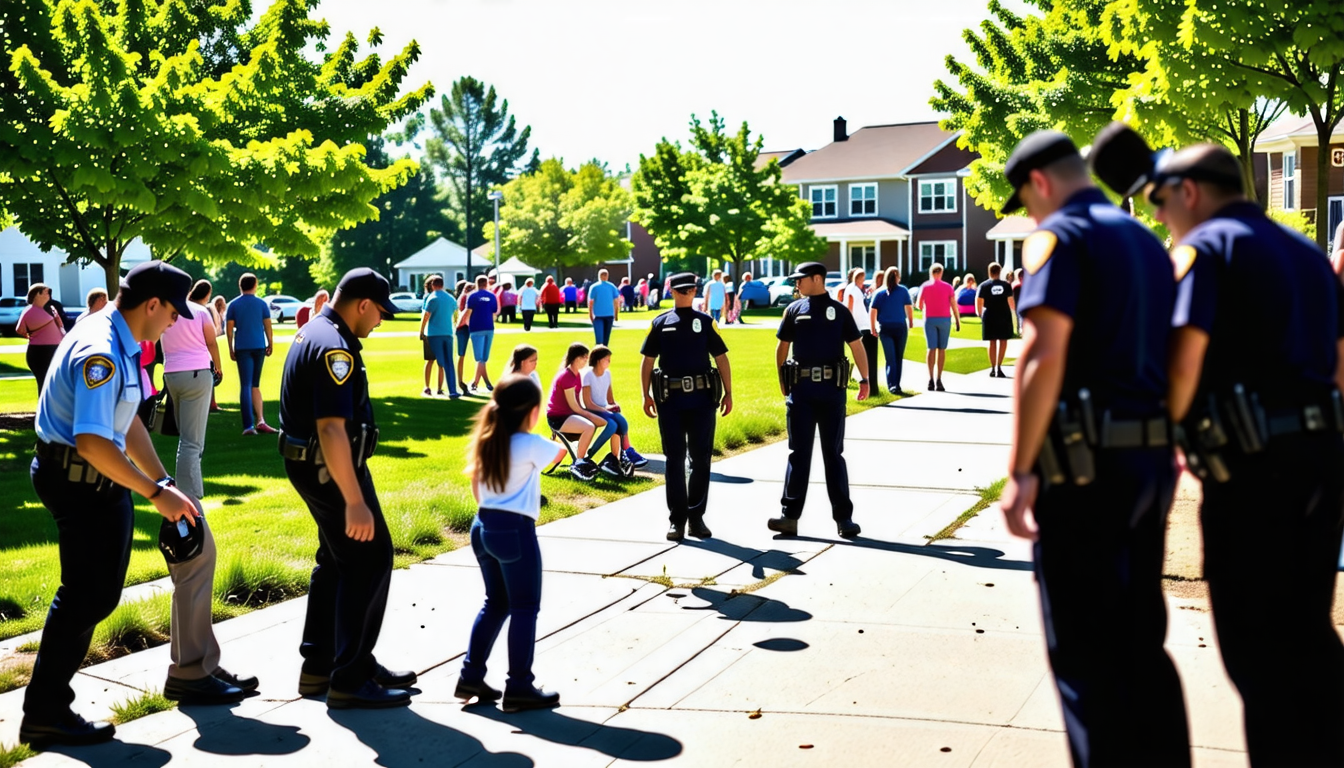|
IN BRIEF
|
Understanding the scope of police authority in Canada is crucial for fostering a healthy relationship between law enforcement and the communities it serves. With the rapidly evolving landscape of law enforcement, the power dynamics have also shifted, prompting a necessary dialogue about the limits and responsibilities associated with police actions. In every corner of Canada, from urban centers to remote areas, police forces are expected to uphold the law while respecting the rights of individuals. However, the public’s awareness of what police can and cannot do remains alarmingly low. This disconnect can lead to both misunderstandings and abuses of power, necessitating a comprehensive examination of police powers, accountability, and the mechanisms in place to ensure that officers operate within their defined jurisdiction.
The scope of police authority in Canada encompasses a range of powers and responsibilities designed to maintain public order and ensure safety. This framework of authority is not only grounded in legislation but also shaped by common law and societal expectations. Understanding these boundaries is crucial for the public, law enforcement officers, and policymakers alike.
Conclusion of Police Authority in Canada
The scope of police authority in Canada is multifaceted, reflecting the complex dynamics between law enforcement powers and community expectations. The legal framework, the role of oversight bodies, and the community policing approach all contribute to the landscape of policing in Canada. As challenges persist, continuous dialogue and engagement are vital for fostering understanding and ensuring that police authority is exercised judiciously and fairly across the nation.
Common Law Police Powers
Common law in Canada has evolved significantly, expanding police powers over the decades. From the initial mandates focused on maintaining public order, law enforcement has gained broader capabilities, which include authority to stop and search individuals, make arrests, and use force when necessary. However, these powers are not infinite; they come with responsibilities and constraints to prevent abuse.
As discussed in various essays and studies, the common law powers have led to a crisis in policing, calling for greater public awareness regarding what law enforcement can and cannot do. This crisis emphasizes the need for both training and public education in understanding police functions, thus fostering a more informed community.
Understanding the scope of police authority in Canada is crucial for maintaining a balanced relationship between law enforcement and the public. Over the decades, the powers granted to police have expanded significantly, reflecting societal needs and challenges. Currently, Canadian police, including the RCMP and municipal police forces, operate under the Royal Canadian Mounted Police Act, which designates them as peace officers with broad authorities across the nation.
However, this expansion calls for increased public awareness regarding the limitations of such authority. For example, civilian oversight mechanisms exist to ensure accountability, and various initiatives have been implemented to safeguard citizens from potential abuse of power. According to the Canadian Civil Liberties Association, it is vital for communities to recognize their rights during encounters with police.
Furthermore, different regional forces, such as transit police or Indigenous policing agencies, have their own mandates and jurisdictions, which can create varying interpretations of authority. This complex landscape emphasizes the need for ongoing education and transparency from police institutions. The public must understand not only the powers police wield but also the accountability measures in place, as outlined by sources such as the Alberta Police Report.
In Canada, the scope of police authority is defined by a comprehensive framework that encompasses legal mandates, public accountability, and adherence to established protocols. Canadian law enforcement agencies operate under the jurisdiction of municipal, provincial, and federal regulations, granting them the power to effectively uphold law and order. However, it is crucial for the public to be fully informed about the limits of police powers to ensure that the rights and freedoms of individuals are respected. As society evolves, ongoing discussions around police accountability and the responsible use of force will remain pivotal in enhancing trust and cooperation between the community and law enforcement.
FAQ
R: The scope of police authority in Canada is defined by a combination of statutory powers and common law principles. Police officers are empowered to enforce laws, maintain order, and ensure public safety. Their authority is governed by various levels of government, which dictate the specific powers available to police in different jurisdictions.
How have police powers evolved in Canada?
R: Over the past decades, police powers in Canada have significantly expanded due to changes in legislation and evolving societal needs. This progression has raised important questions regarding the balance between effective law enforcement and the protection of individual rights.
Who holds police accountable in Canada?
R: Police in Canada are accountable to the public and are overseen by several government agencies at municipal, provincial, and federal levels. Civilian oversight bodies play a crucial role in scrutinizing police conduct and addressing complaints from the community.
What are some limitations on police authority?
R: Police authority in Canada is not limitless. The use of force must be reasonable and necessary, adhering to established guidelines and legal frameworks. Furthermore, officers must respect constitutional rights such as the right to fair trial and due process.
What is the role of community policing in shaping police authority?
R: Community policing emphasizes collaboration between law enforcement and community members. This approach fosters transparency, enhances trust, and encourages mutual respect, ultimately shaping the way police authority is exercised in local contexts.
